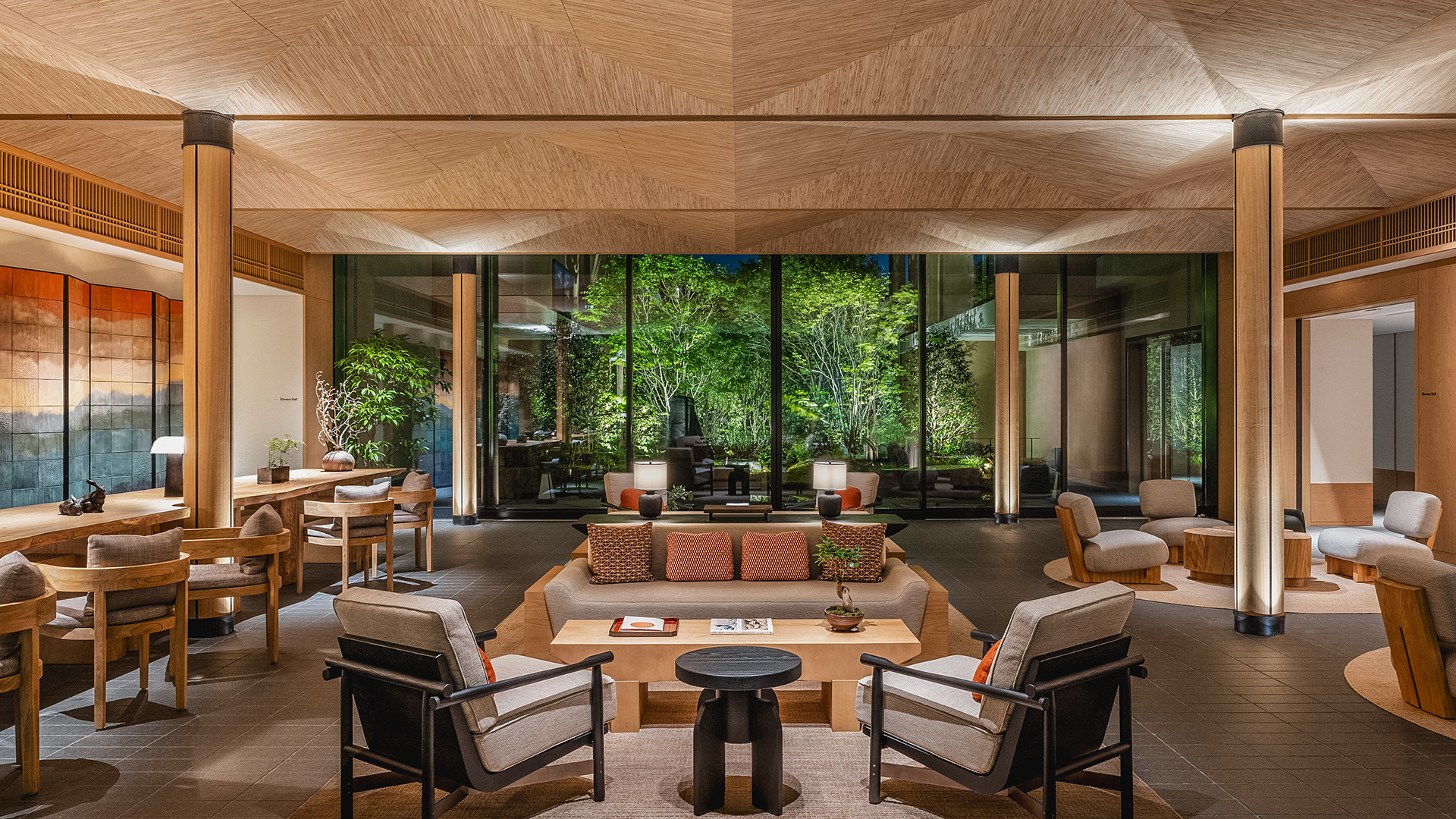Young Money: How Millennials and Gen Z are changing the face of luxury hospitality
In the fourth of his series of design-related articles, BLINK founder and creative partner Clint Nagata shares his thoughts on how millennials and Gen Z are changing the face of luxury hospitality… Is it all change following the revelation that these two young demographics are set to control 80% of the global personal luxury goods market by 2030?

Millennials and Gen Z are predicted to command 80% of the global personal luxury goods market by 2030. Meaning, in just over five years, the market in which we operate will effectively be controlled by two digitally-native demographics that are widely considered to value meaningful experiences over the acquisition of possessions.
If the 2024 report, Long Live Luxury by Bain & Company, comes to fruition, a whole host of opportunities and threats will arise for the luxury market. When one generation supersedes another, namely their parents, much of the old world is cast off. Be it through acts of rebellion, peer pressure or simply the desire for shiny new things to call their own, times are already changing.
So, how do we predict the needs and wants of our powerful new paymasters without being perceived as patronising or pandering? And, as an interior designer working predominately in the luxury hospitality sector, what does this seismic shift mean for me and my team of 70+ employees at BLINK?
Experience trumps ownership
The experience-over-possessions paradigm can certainly provide some reassurance. With less importance given to home ownership and more flexible and nomadic work models becoming the norm, smart young people are travelling light.
Where before, the ownership of luxury hard goods in the shape of jewellery, watches and cars, or soft goods in the form of high-end clothing and accessories, would have defined one’s station in life. Now, experience is seen as a greater sign of success, especially when social media offers an instant global platform upon which to validate such experiential wealth. As Albert Einstein said, “The only source of knowledge is experience.”
“The quality and variety of experiences guests can access will determine their choices – and the more authentic those experiences, the better.”
Several hospitality brands are already exploring creative new ways to offer a luxury experience without the restraints of ownership. Take the Four Seasons Hotel Group. They’ve started lending out luxury handbags and accessories from the likes of Chanel, Gucci, and Prada to guests free of charge, meaning customers don’t have to weigh down their luggage with such items, or even purchase them in the first place.
The luxury hospitality market, though, cannot be complacent in thinking these untethered, curious types will flock to the same surroundings they visited with their parents just a few years earlier. The market needs to cater to their less tangible requirements, whether that’s facilitating off-site life-affirming encounters or providing in-house world-class wellness facilities. Put simply, the quality and variety of experiences younger guests can access will determine their choices – and the more authentic those experiences, the better.
Luxury is changing across the board
I’ve personally seen a shift in the luxury retail market, which is clearly taking cues from streetwear. Following Louis Vuitton’s high-profile collaboration with Supreme in 2017, Tiffany & Co. recently joined forces with Nike for a strictly limited run of Air Force 1 trainers, while Adidas and Gucci simultaneously produced a whole range of highly coveted footwear. These unlikely alliances came from very different places, but when brought together, they created something truly unique.
“Your average high-net-worth-millennial may not want to own a $50,000 watch, but they’ll be guaranteed the time of their life in the watchmaker’s hotel.”

Leading hospitality brands are also forging new and unexpected coalitions while venturing into more experience-based offerings. Watchmaker Audemars Piguet recently opened a hotel near its HQ in Switzerland while Porsche has paired up with German hospitality group Steigenberger for an ambitious rollout of 15 global hotels. Bucking the trend, Armani opened a luxury hotel in Dubai way back in 2010 and a Milan-based outpost the following year.
Hospitality groups are also preparing to usher in the new guard. BLINK client Hilton LXR specialises in the pursuit of personal adventure by offering one-of-a-kind cultural adventures, while fellow BLINK patrons, Six Senses and Banyan Tree Group, are both market leaders in wellness travel for those seeking the best in rest and recuperation.
These pivots and new partnerships certainly signify smart lateral thinking in leveraging brand recognition, alongside an awareness that diversification ensures survival. Your average high-net-worth millennial may no longer want to own a $50,000 watch, but they’ll be guaranteed the time of their life in the watchmaker’s hotel.
Practicing what we preach
Closer to home, we at BLINK take pride in running a young and dynamic studio. A large proportion of our team is under 30 years old, which is also a direct reflection of our client base.
Not to diminish the value of age and experience (I’d be putting myself out of a job if I did), but if you credibly want to connect with younger generations, you need to draw employees from that same pool. Put simply, their experiences, opinions and desires all feed into our thinking and our approach.
“The evolution of luxury into something less stiff, less traditional, has really helped our firm grow.”
I like to think of BLINK as a forward-thinking design practice. We’ve always tried to do things that are contemporary yet timeless. The evolution of luxury into something less stiff and less traditional has really helped our firm grow. But to remain vital, we must ensure we don’t design from the top down. Subsequently, we always strive to create environments and opportunities for younger staff to provide ideas and create something different, something new – and it’s our mix of talent, ages and backgrounds that allow us to do just that.




